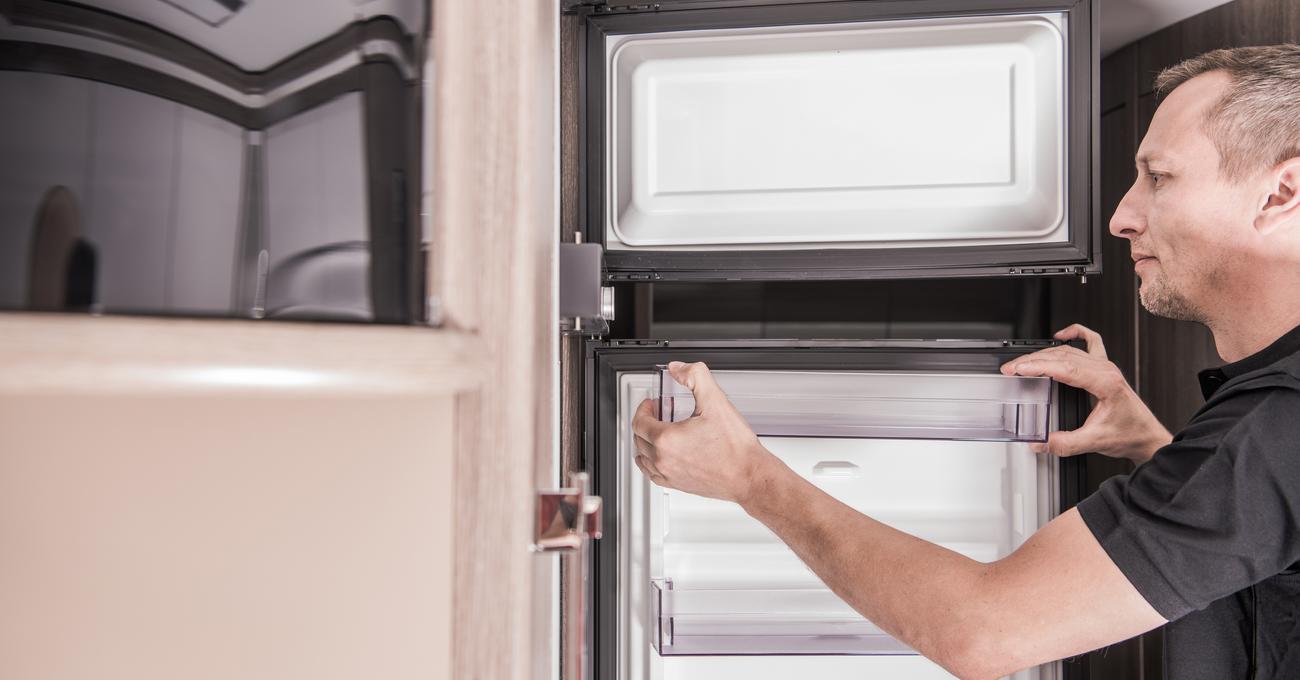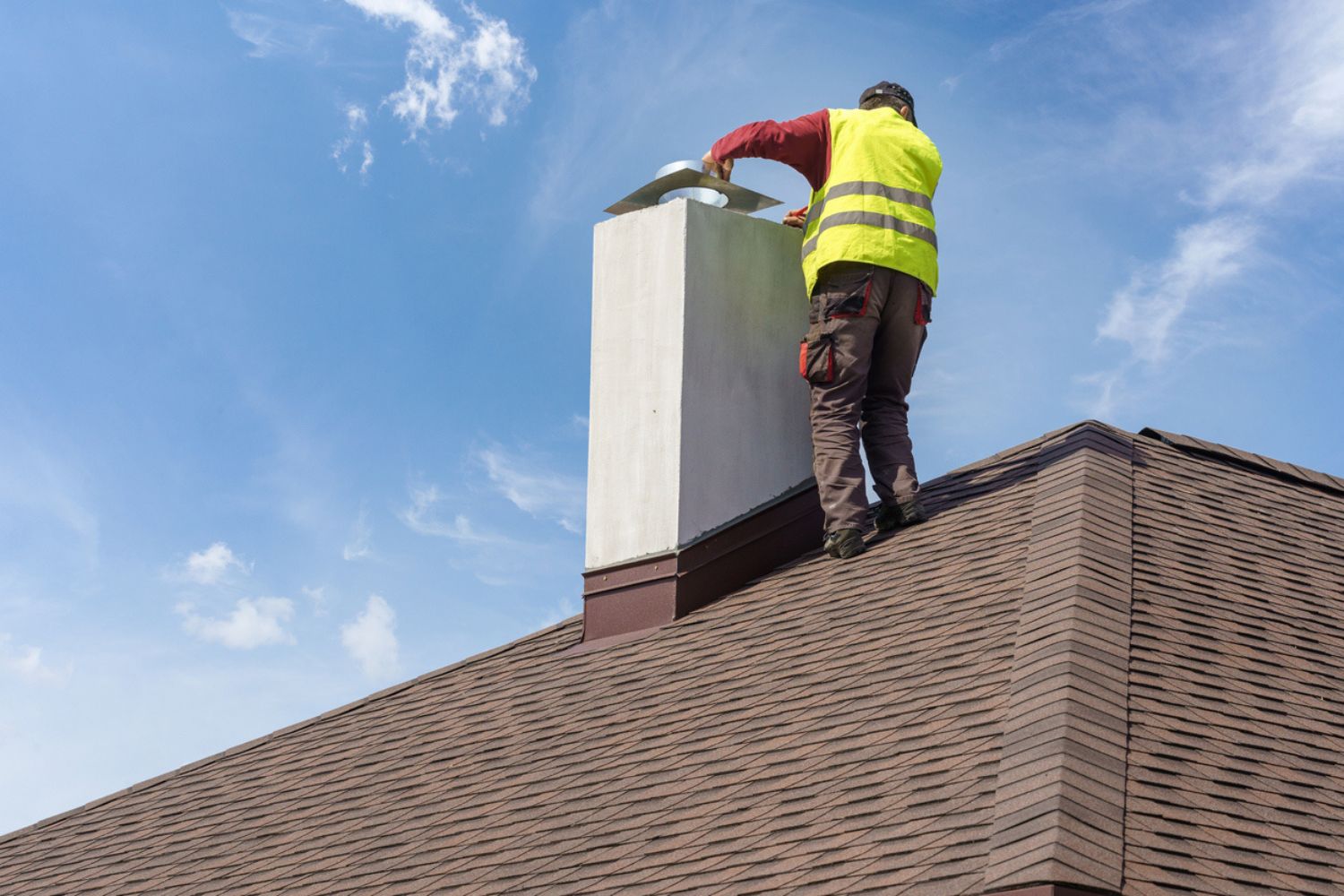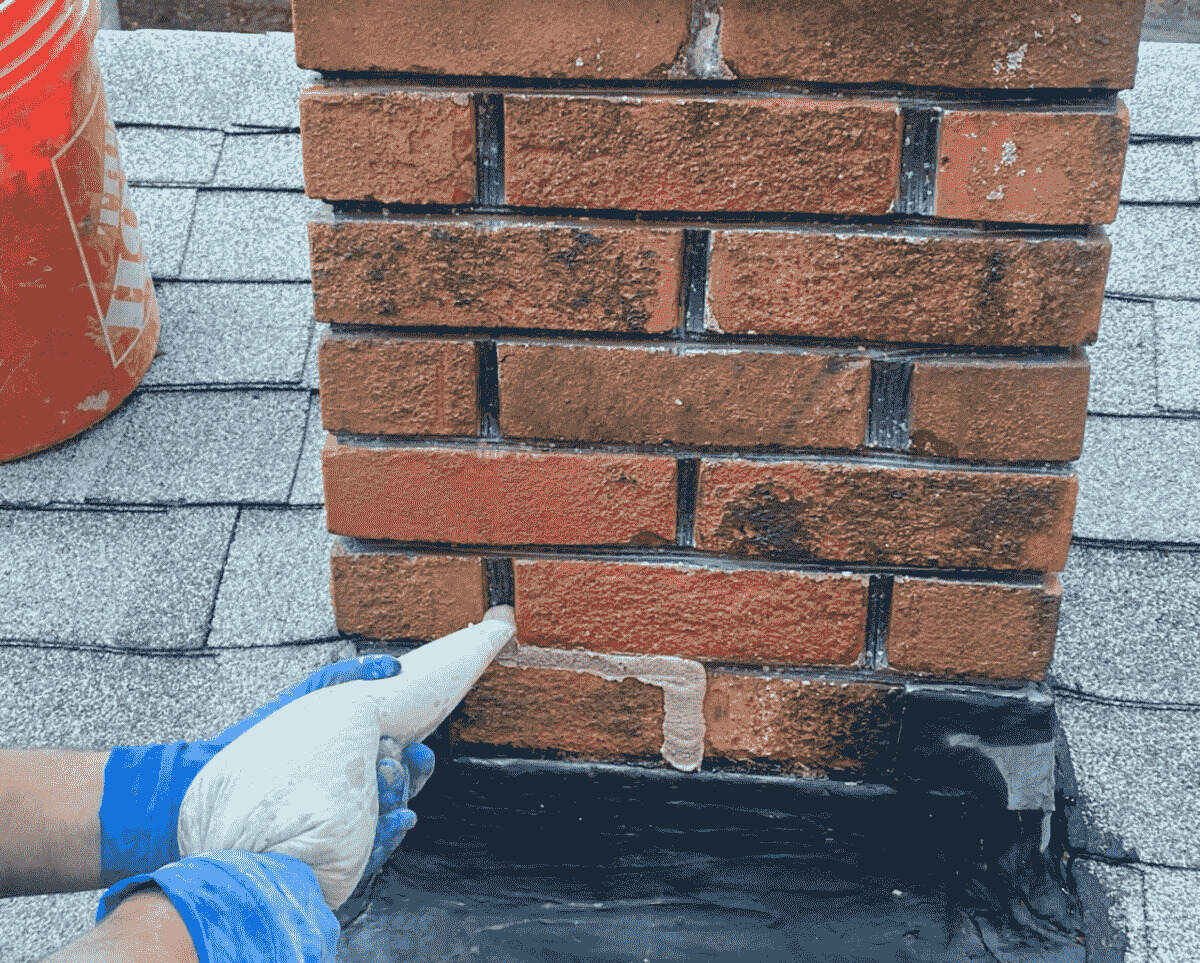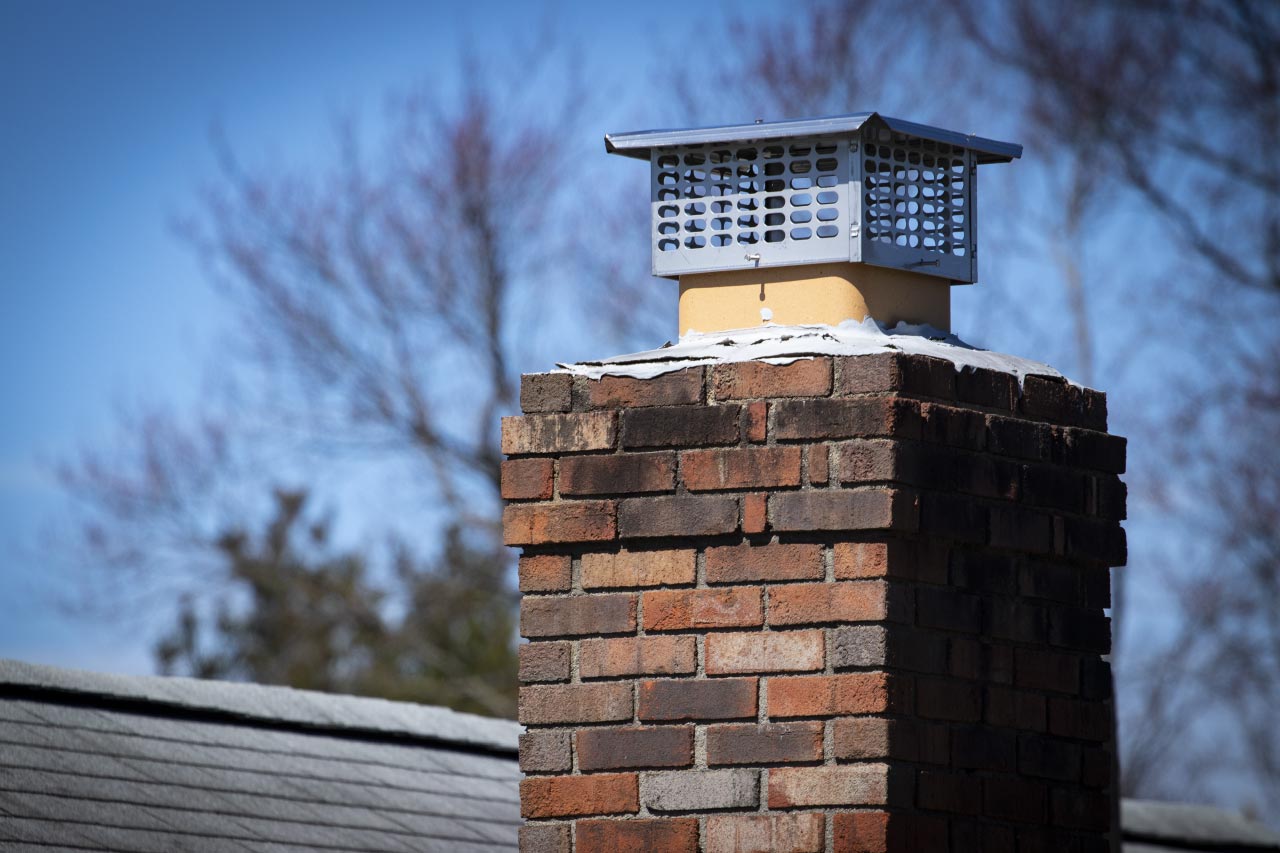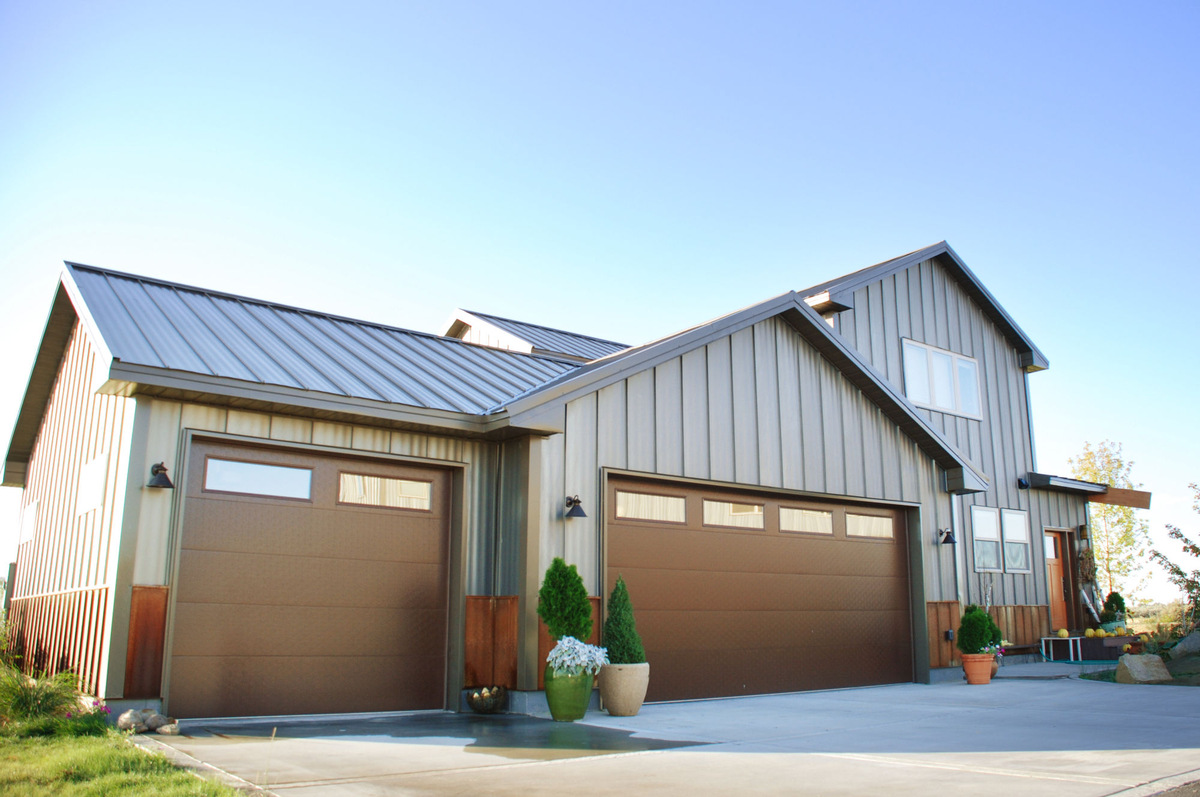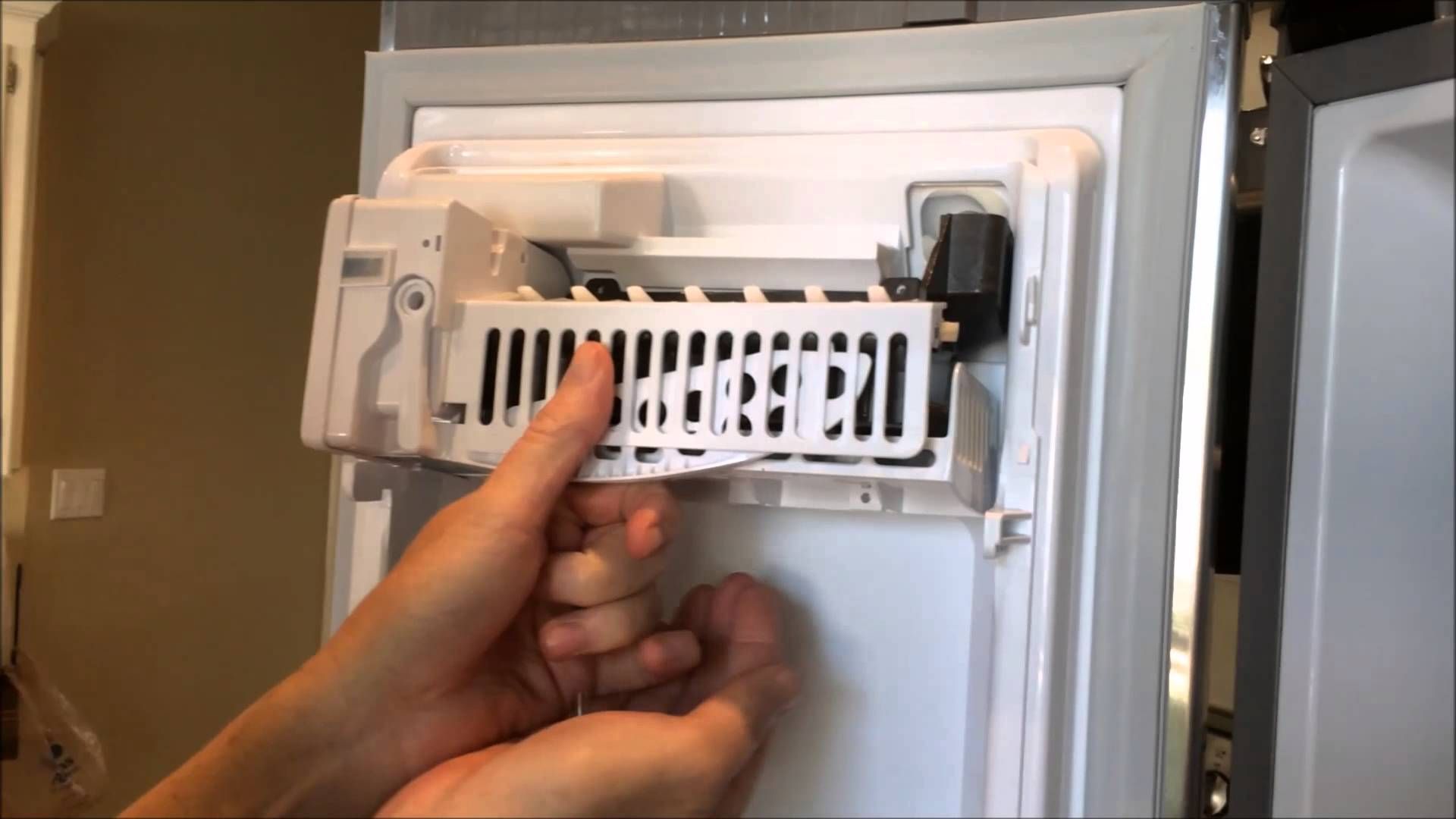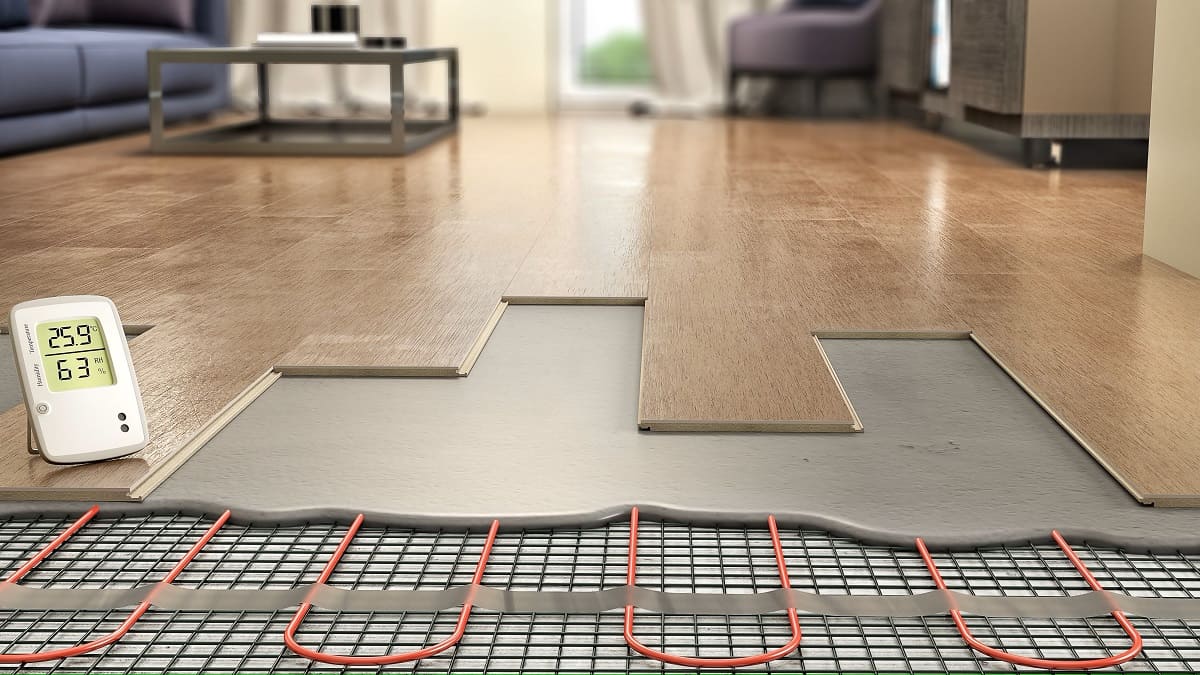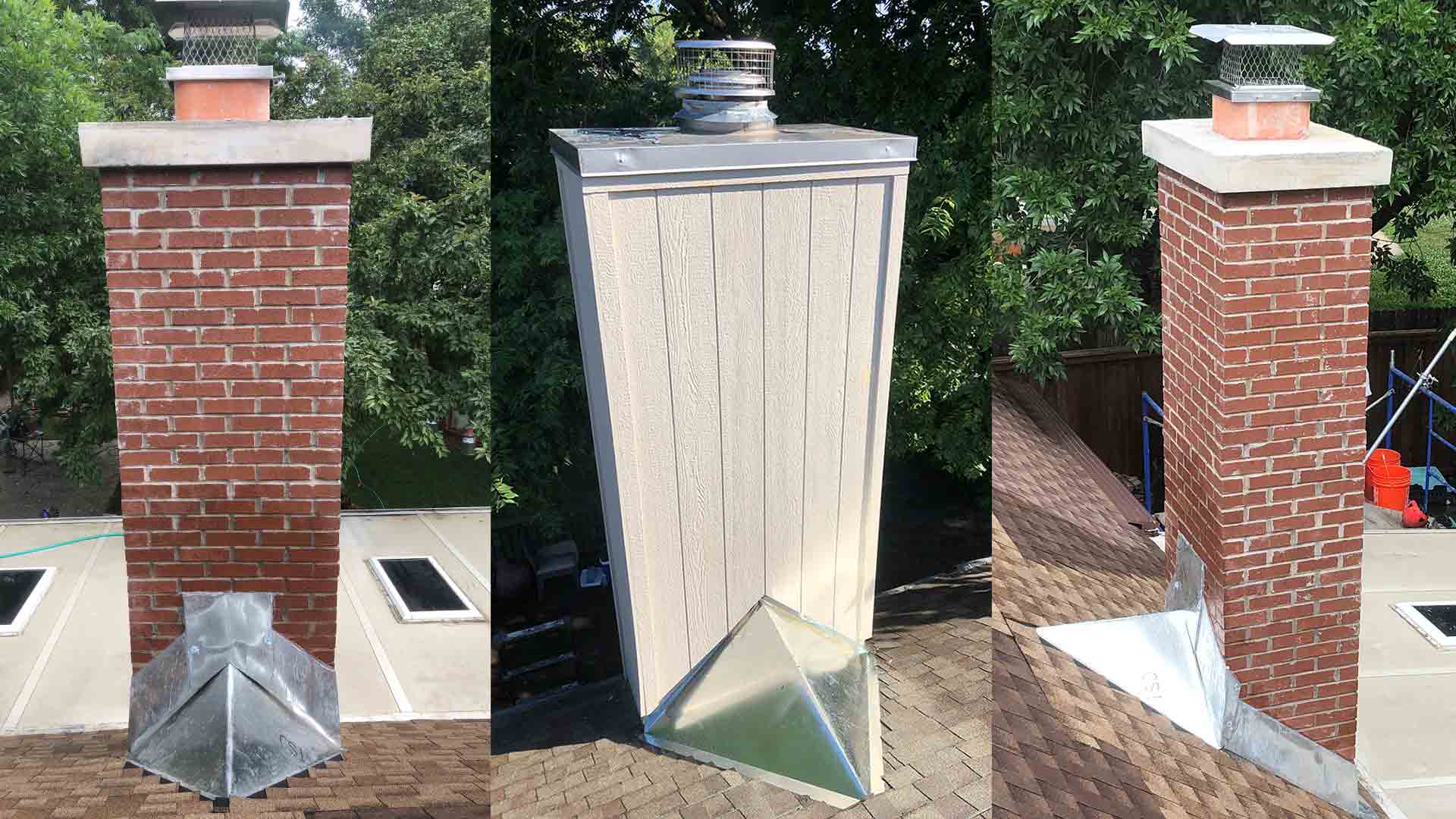Home>Home Maintenance>How Much Does Refrigerator Repair Cost
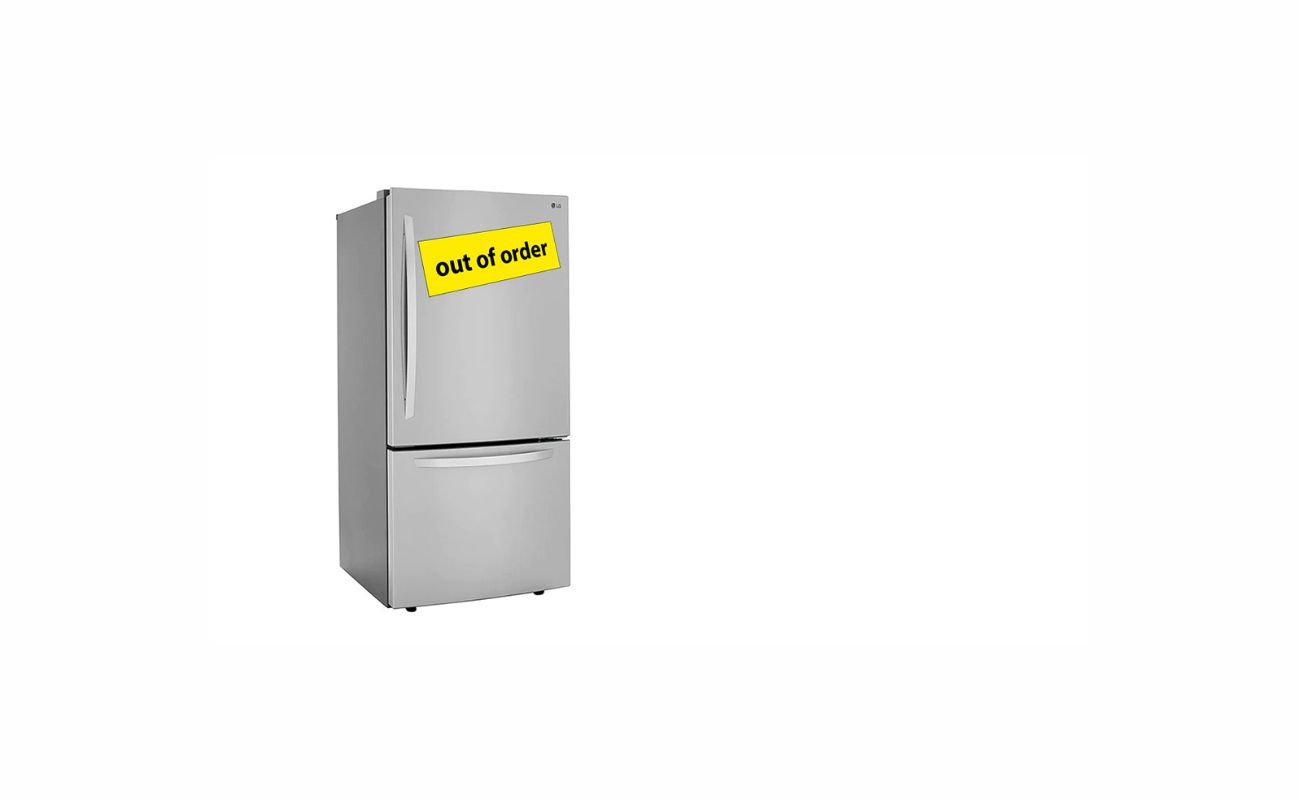

Home Maintenance
How Much Does Refrigerator Repair Cost
Modified: August 27, 2024
Get an idea of the average cost for refrigerator repair in your home maintenance budget. Find out how much you should expect to spend on fixing your refrigerator.
(Many of the links in this article redirect to a specific reviewed product. Your purchase of these products through affiliate links helps to generate commission for Storables.com, at no extra cost. Learn more)
Introduction
Refrigerators are an essential appliance in any home, keeping our food fresh and our beverages cold. However, like any other machine, refrigerators are prone to breakdowns and malfunctions. When your refrigerator stops working properly, it’s crucial to have it repaired promptly to avoid food spoilage and inconvenience.
But how much does refrigerator repair actually cost? Well, the cost of repairing a refrigerator can vary depending on several factors. In this article, we will explore the factors that affect refrigerator repair costs, common repair issues, DIY vs professional repair cost comparison, and tips to reduce your refrigerator repair expenses.
Before we delve into the cost details, it’s important to note that refrigerator repair costs can range from a few dollars for simple fixes to several hundred dollars for complex repairs. The exact cost will be determined by the nature of the problem, the complexity of the repair, and your location.
It’s worth mentioning that refrigerators are complex machines with various components like compressors, condensers, evaporators, fans, and thermostats. Any of these parts can malfunction and require repair or replacement, which will impact the overall cost of refrigerator repairs.
Now, let’s explore the factors that influence refrigerator repair costs in more detail.
Key Takeaways:
- Refrigerator repair costs vary based on factors like repair type, extent of damage, and brand/model. DIY repairs may save on labor but can lead to mistakes and higher costs in the long run.
- Choosing a professional repair service ensures expertise, genuine parts, and warranties, potentially saving money in the long run. Regular maintenance can also minimize the need for costly repairs.
Factors Affecting Refrigerator Repair Costs
Several factors determine the cost of repairing a refrigerator. Understanding these factors will help you have a realistic expectation of the expenses involved. Here are the key factors:
- Type of Repair Needed: The type of repair required is one of the primary factors influencing cost. Simple repairs like fixing a faulty switch or replacing a lightbulb will be less expensive compared to more complex issues like a compressor failure or a refrigerant leak.
- Extent of Damage: The severity of the problem also impacts the repair cost. Minor issues that can be resolved quickly will be cheaper compared to major repairs that require extensive labor and parts replacement.
- Parts Replacement: If your refrigerator requires replacement parts, the cost of those parts will add to the overall repair cost. The price of parts can vary depending on the brand and model of your refrigerator.
- Brand and Model: Different refrigerator brands and models have unique designs and components, which can affect the cost of repairs. Some brands may have more expensive parts or require specialized technicians, resulting in higher repair costs.
- Age of the Refrigerator: The age of your refrigerator can impact the repair costs. Older models may require more extensive repairs or hard-to-find parts, which can increase the overall cost of the repair.
- Location: Repair costs can also vary depending on your location. In areas with a high cost of living, you can expect higher repair costs compared to areas with a lower cost of living.
- Warranty: If your refrigerator is still under warranty, the repair cost may be covered by the manufacturer. However, if your warranty has expired, you will be responsible for the full repair cost.
Keep in mind that these factors can interact with each other, resulting in different repair costs for each situation. It’s always a good idea to consult with a professional repair technician to diagnose the problem and provide an accurate estimate of the repair cost.
Now that we’ve discussed the factors that influence refrigerator repair costs, let’s move on to explore common repair issues and their associated costs.
Common Refrigerator Repair Issues and their Costs
Refrigerators can encounter a range of issues, some more common than others. Understanding these common problems and their associated costs can help you anticipate potential repair expenses. Here are a few common refrigerator issues:
- Temperature Regulation Problems: If your refrigerator is not cooling properly or if the temperature fluctuates, it could be due to a faulty thermostat, a malfunctioning compressor, or a blocked airflow. The cost of repairing temperature regulation issues can range from $100 to $300, depending on the specific problem.
- Refrigerant Leak: A refrigerant leak can cause your refrigerator to lose its cooling capacity. Repairing a refrigerant leak involves fixing the source of the leak and recharging the system with the appropriate refrigerant. The cost of repairing a refrigerant leak can range from $200 to $500, depending on the severity of the leak and the amount of refrigerant required.
- Compressor Failure: The compressor is the heart of the refrigerator, and if it fails, the entire cooling system will be affected. Replacing a faulty compressor can be a costly repair, ranging from $300 to $600 or more, depending on the brand and model of your refrigerator.
- Defrost System Issues: When the defrost system malfunctions, ice can build up in the freezer or refrigerator compartment, affecting cooling performance. Repairing the defrost system can cost between $150 and $300, depending on the specific components that need to be repaired or replaced.
- Water Leakage: Water leakage from your refrigerator can be caused by a variety of issues, such as a clogged or frozen defrost drain, a faulty water inlet valve, or a cracked water line. The cost of fixing water leakage problems can range from $100 to $300, depending on the complexity of the repair.
These are just a few examples of common refrigerator repair issues and their associated costs. Remember that the actual repair cost will vary depending on factors such as the brand and model of your refrigerator, the extent of the damage, and the location of the repair service.
While it’s tempting to attempt DIY repairs to save money, it’s essential to be cautious. Incorrect repairs can lead to further damage and higher costs in the long run. In the next section, we’ll compare the cost of DIY repairs versus professional repair services.
DIY vs Professional Repair Cost Comparison
When faced with a refrigerator repair, you might consider trying to fix the issue yourself to save money. While DIY repairs can be cost-effective in some cases, it’s important to weigh the pros and cons before diving in. Let’s compare the costs of DIY repairs versus professional repair services:
DIY Repairs:
- Lower Labor Cost: One of the advantages of tackling the repair yourself is that you can save on labor costs. However, keep in mind that the time and effort you invest in learning the necessary skills and troubleshooting the problem can also have a value.
- Lower Parts Cost: Purchasing the replacement parts yourself can potentially save you money since you can shop around for the best prices. However, there is a risk of buying incorrect or substandard parts, which can lead to further complications and expenses.
- Risk of Mistakes: DIY repairs carry the risk of making mistakes that can worsen the problem or even cause additional damage. This can result in higher repair costs if you need to call a professional to undo the errors and fix the original issue.
Professional Repair Services:
- Expertise and Experience: Professional repair technicians have the knowledge, skills, and experience to diagnose and fix refrigerator issues accurately. They can quickly identify the root cause of the problem, saving you time and the frustration of troubleshooting on your own.
- Guaranteed Work: Reputable repair services often provide warranties or guarantees on their work, giving you peace of mind knowing that if the problem persists, they will come back to fix it without additional charge.
- Access to Genuine Parts: Professional repair services usually have access to genuine parts from manufacturers, ensuring the quality and compatibility of the replacements. This can prevent future issues and additional repair costs.
- Insurance and Liability: Hiring a professional repair service means you are protected in case of accidents or damages that occur during the repair process. They have the necessary insurance coverage to handle any unexpected situations.
While professional repair services may have higher upfront costs compared to DIY repairs, they can save you money in the long run by avoiding mistakes, ensuring proper repairs, and preventing further damage. It’s important to consider your own skills, the complexity of the repair, and the potential risks involved before deciding whether to attempt a DIY repair or hire a professional.
With that said, there are a few tips you can follow to reduce refrigerator repair costs overall, which we’ll discuss in the next section.
Tips to Reduce Refrigerator Repair Costs
While refrigerator repairs are sometimes unavoidable, there are steps you can take to minimize the need for repairs and reduce the associated costs. Here are some helpful tips:
- Maintain Regular Cleaning: Keep your refrigerator clean, both inside and outside, to prevent dust buildup and ensure proper airflow. Regularly clean the condenser coils to improve efficiency and reduce strain on the compressor.
- Temperature Regulation: Set your refrigerator to the recommended temperature and avoid extreme temperature fluctuations. This will help prolong the lifespan of the components and prevent unnecessary strain on the compressor.
- Properly Organize the Contents: Properly organizing your refrigerator can help maintain optimal airflow and prevent overloading. Avoid blocking the vents and ensure proper ventilation to avoid excessive strain on the cooling system.
- Avoid Overloading: Overloading your refrigerator can put stress on the compressor and other components. Be mindful of the weight and volume of items you place in your refrigerator to prevent unnecessary strain and potential damage.
- Check Seals and Gaskets: Regularly inspect the seals and gaskets around the refrigerator doors to ensure a proper seal. Damaged or loose seals can lead to air leaks, compromising the efficiency of the cooling system and increasing energy consumption.
- Address Problems Promptly: If you notice any issues with your refrigerator, such as strange noises, unusual odors, or temperature inconsistencies, address them promptly. Ignoring small problems can lead to more significant issues and higher repair costs down the line.
- Read the Owner’s Manual: Familiarize yourself with the manufacturer’s recommendations and instructions provided in the owner’s manual. Follow the suggested maintenance tasks and guidelines to keep your refrigerator running smoothly and prevent potential problems.
- Consider Extended Warranty: If your refrigerator is nearing the end of its warranty period or if you’re purchasing a new one, consider investing in an extended warranty. This can provide additional coverage for repairs and help reduce potential out-of-pocket expenses.
Following these tips can help extend the lifespan of your refrigerator and minimize the need for repairs. However, if a repair is necessary, it’s important to have an idea of the average cost of refrigerator repairs. Let’s delve into that in the next section.
It’s important to get a few quotes from different repair companies before committing to a service. Prices can vary depending on the issue and the company, so it’s best to shop around for the best deal.
Read more: How Much Does HVAC Refrigerant Cost
Average Cost of Refrigerator Repairs
The average cost of refrigerator repairs can vary depending on the specific issue and several other factors we have discussed. While it is challenging to provide an exact average cost, we can provide a general range to give you an idea of what to expect.
For minor repairs that involve simple fixes like replacing a lightbulb, fixing a faulty switch, or unclogging a drain, you can expect to pay anywhere from $50 to $200. These repairs are relatively straightforward and can often be done without professional assistance.
For more complex repairs, such as fixing temperature regulation issues, defrost system problems, or water leakage, the average cost can range from $100 to $400. The actual cost will depend on the extent of the damage, the specific parts required, and the complexity of the repair.
If your refrigerator experiences major issues such as compressor failure or refrigerant leaks, the cost can be significantly higher. Compressor replacement typically costs between $300 to $600, while repairing a refrigerant leak can range from $200 to $500, including fixing the source of the leak and recharging the system with refrigerant.
It’s important to note that these are average costs and can vary based on factors such as your location, the brand and model of your refrigerator, and the rates charged by the repair service. Additionally, emergency or after-hours repairs may incur higher costs due to the urgency and availability of technicians.
When considering repair costs, it’s also important to evaluate the age of your refrigerator and the potential benefits of repair versus replacement. If your refrigerator is older and experiencing frequent breakdowns or is nearing the end of its lifespan, it may be more cost-effective to invest in a new unit rather than spending a significant amount on repairs.
Before making a decision, it’s recommended to consult with a professional repair technician. They can diagnose the problem, provide an accurate estimate of the repair cost, and offer advice on whether repairing or replacing the appliance is the best course of action.
Finally, it’s essential to consider additional costs that may arise during the repair process, which we’ll explore in the next section.
Additional Costs to Consider
When it comes to refrigerator repairs, there are a few additional costs to consider aside from the actual repair service. These costs can impact the overall expenses and should be taken into account while budgeting for the repair. Here are some significant additional costs to keep in mind:
- Service Call Fee: Many repair companies charge a service call fee, which typically covers the cost of the technician’s visit and diagnosis of the problem. This fee can range from $50 to $100, depending on the company and your location.
- Replacement Parts: If your refrigerator requires replacement parts, you’ll need to consider the cost of those parts. The price of parts can vary depending on the specific component, brand, and model of your refrigerator. Be prepared for potential expenses in the range of $50 to $200 or more for parts.
- Shipping Costs: If you need to order parts for your refrigerator’s repair, there may be additional shipping costs involved. Depending on the size, weight, and urgency of the parts, shipping fees can range from a few dollars to significantly higher amounts.
- Tax and Surcharge: Some repair services may apply taxes or surcharges to the overall repair cost. These additional charges can be a percentage of the total or a flat fee, so be sure to inquire about any potential taxes or surcharges before agreeing to the service.
- Emergency or After-Hours Service: If you require immediate or after-hours refrigerator repair service, it may come with an added cost. Emergency or after-hours rates are often higher due to the urgency and availability of technicians. Expect to pay a premium for rapid response to your repair needs.
- Extended Warranty: If your refrigerator is out of warranty and you choose to purchase an extended warranty for future repairs, there will be an additional cost. Extended warranties can provide peace of mind and potential savings in the long run, but it’s important to consider the cost-effectiveness based on your specific needs.
These additional costs can vary depending on the repair company and your specific circumstances. It’s advisable to inquire about these potential costs upfront and request a detailed breakdown of all expenses involved in your refrigerator repair.
Now that we’ve explored the factors influencing refrigerator repair costs and the additional expenses to consider, let’s focus on choosing the right appliance repair professional in the next section.
Choosing the Right Appliance Repair Professional
When it comes to refrigerator repairs, selecting the right appliance repair professional is crucial to ensure quality service and a satisfactory outcome. Here are some factors to consider when choosing a repair professional:
- Experience and Expertise: Look for repair technicians who have experience and expertise specifically in refrigerator repairs. They should be familiar with various brands and models, as well as common problems and their solutions. Check their credentials, certifications, and customer reviews to gauge their level of expertise.
- Reputation and Reviews: Research the reputation of the repair professionals or companies you are considering. Read online reviews and testimonials from previous customers to get an idea of their service quality, reliability, and customer satisfaction. A reputable repair professional will have positive feedback and a track record of delivering excellent service.
- Licensed and Insured: Ensure that the repair professional you choose is licensed and insured. This provides peace of mind for both you and the technician in case of any unforeseen circumstances during the repair process. Licensing indicates that they have met the necessary requirements and certifications to perform appliance repairs.
- Availability and Response Time: Consider the availability and response time of the repair professional. A responsive and punctual technician can minimize the downtime of your refrigerator and ensure quick repairs. Inquire about their scheduling process and whether they offer emergency or after-hours services if needed.
- Guarantees and Warranties: Look for repair professionals who offer guarantees or warranties on their work and the parts they use. A warranty ensures that you are protected in case any issues arise after the repair is completed. It also reflects the confidence the technician has in their skills and the quality of their service.
- Cost Transparency and Estimates: Seek repair professionals who provide transparent pricing and detailed estimates for the repair. They should be willing to discuss the breakdown of costs, including labor, parts, and any additional fees. Avoid repair professionals who are vague or unwilling to provide clear pricing information.
- Customer Service: Pay attention to the level of customer service provided by the repair professional. Friendly, courteous, and knowledgeable technicians who prioritize customer satisfaction can make the repair process much more pleasant and smooth. Effective communication and transparency throughout the repair process are signs of excellent customer service.
By considering these factors and conducting thorough research, you can choose the right appliance repair professional who meets your needs and ensures an efficient and successful refrigerator repair.
As we conclude, it’s important to note that regular maintenance and care can help prevent some common refrigerator problems and minimize repair costs in the long run. By taking proactive measures, such as cleaning coils, checking seals, and organizing the contents properly, you can prolong the life of your refrigerator and reduce the likelihood of major issues.
Remember, when in doubt, consult with a professional repair technician to diagnose and address any refrigerator problems. Their expertise and guidance will help you make informed decisions regarding repairs and potentially save you from costly mistakes.
To summarize, understanding the factors influencing repair costs, common refrigerator issues, and the importance of choosing a reliable repair professional empowers you to make informed decisions when faced with a refrigerator repair. Take care of your refrigerator, and it will continue to serve you well for years to come.
Conclusion
Refrigerator repairs are an inevitable part of appliance ownership, but understanding the factors that influence repair costs and making informed decisions can help minimize expenses. By considering the type of repair needed, the extent of the damage, and the brand and model of your refrigerator, you can get a clearer idea of the potential costs involved.
While DIY repairs may seem cost-effective, they can come with risks and potential additional expenses if not done correctly. Hiring a professional repair service provides expertise, guarantees, and access to genuine parts, ensuring the job is done right the first time and preventing future problems.
To reduce refrigerator repair costs, it’s essential to maintain regular cleaning, proper temperature regulation, and organized storage. Addressing problems promptly and following the manufacturer’s recommendations can also extend the lifespan of your refrigerator.
When it comes time to choose an appliance repair professional, consider their experience, reputation, licensing, and customer reviews. Transparency in pricing, availability, and warranties are also key factors to evaluate. By choosing the right professional, you can have peace of mind knowing that your refrigerator is in capable hands.
Remember, while the average cost of refrigerator repairs can vary, it’s important to budget for additional expenses such as service call fees, replacement parts, and potential shipping costs. Considering these factors upfront will help you prepare financially and avoid any surprises.
In conclusion, investing in regular maintenance and timely repairs will not only save you money in the long run but also extend the life of your refrigerator. By being proactive and informed, you can keep your refrigerator running smoothly, ensuring your food stays fresh and your home functions efficiently.
So take care of your refrigerator and choose the right repair services when needed. With proper attention and maintenance, your refrigerator will continue to be a reliable appliance in your home for years to come.
Frequently Asked Questions about How Much Does Refrigerator Repair Cost
Was this page helpful?
At Storables.com, we guarantee accurate and reliable information. Our content, validated by Expert Board Contributors, is crafted following stringent Editorial Policies. We're committed to providing you with well-researched, expert-backed insights for all your informational needs.
